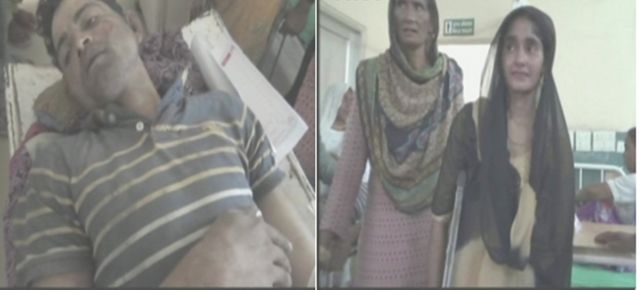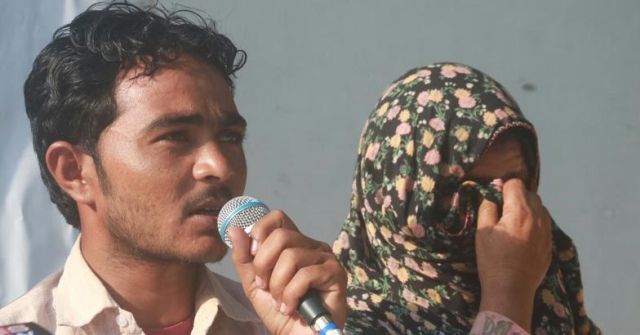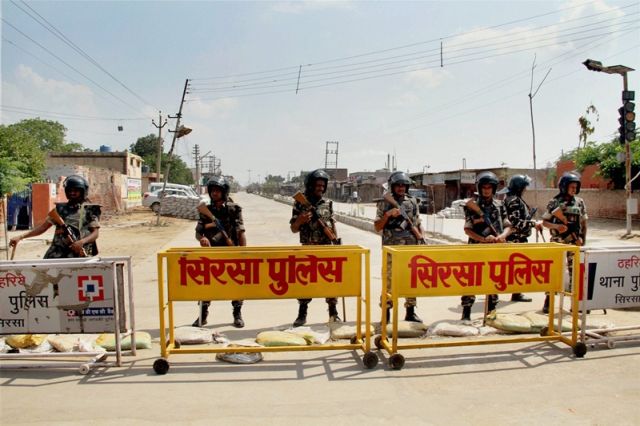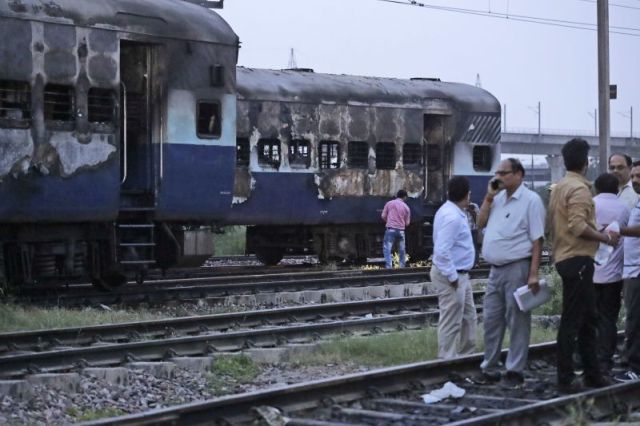
by Editor | May 25, 2021 | Markets, News, Politics, Technology
 By Saurabh Katkurwar,
By Saurabh Katkurwar,
New Delhi : If the farmers of Punjab and Haryana were to adopt smart techniques and use appropriate machinery, say experts, they won’t hog the headlines every winter for the wrong reasons — causing smog in the national capital because of stubble-burning.
The Borlaug Institute of South Asia (BISA), a non-profit set up in 2011 to harness the latest technology in agriculture to improve farm productivity, has claimed to have reduced the volume of agricultural residue burning in some villages it has selected for smart farming in the last few years.
One of the successful examples is a cluster of villages in Haryana’s Karnal district, where stubble-burning has shrunk to just 20 per cent of the cultivated land, local farmers said.
Vikas Chaudhary, who cultivates 35 acres of land in Taraori, said this year paddy straw was burnt on just 400-500 acres of the total 2,400 acres of agricultural land in the village.
He said BISA has suggested an alternative in the form of a new machine — a Happy Seeder — which allows effective seeding without removing the straw residue.
Conceived by the Punjab Agricultural University (PAU), Happy Seeder is like any Zero Till Machine with the additional feature of a chopper that clears the loose straw which creates problems in sowing.
BISA is a collaborative effort involving the El Batan, Mexico-based International Maize and Wheat Improvement Centre (CIMMYT) and the Indian Council for Agricultural Research (ICAR).
Earlier, farmers would cut the entire crop while reaping under conventional methods, leaving very little straw on the field.
However, the advent of combine harvesters — machines that combine the three separate operations of reaping, threshing and winnowing into one process — the magnitude of straw burning has increased since it cuts just the spike of paddy plants, leaving stems intact.
In the past few years, farmers have become accustomed to using Rotavators — soil tilling machine — before sowing seeds.
Since Rotavators cannot work unless the agriculture residue is cleared, farmers have no option but to set the stubble on fire as manual removal is not a viable option owing to the huge cost involved and small time window to cultivate winter crops such as wheat, said M.L. Jat, Principal Scientist with the CIMMYT.
“In our smart farming villages, we have introduced Happy Seeder machines which facilitate seed sowing though there is stubble in the field. It retains soil fertility as well,” Jat said.
“And the results are positive. Not just the output has remained unaffected, but input cost has gone down as well. We have found that stubble provided nutrients to soil, minimising the requirement of fertiliser.”
Manoj Munjal, who cultivates 125 acres of land in Taraori, said he has not burnt stubble on a single inch of his fields in last five-six years and that stubble-burning in the area can be reduced to zero if governments encourage the use of Happy Seeder by offering a huge subsidy.
There is one more cluster in Punjab’s Ludhiana district, where farmers have started taking steps to free their fields from burning.
Local farmers said they did not derive any pleasure from seeing the people of Delhi being choked up in smog but they did not have any other option.
“We are painted as villains for the pollution in Delhi. However, we also suffer due to stubble farming. Our village had almost become a gas chamber on November 14. But we are helpless,” said Jagdev Singh, a farmer from Nurpur village.
The Nurpur Bet Agriculture Multipurpose Cooperative Society provides agricultural machinery and equipment to farmers from six neighbouring villages as they cannot afford purchasing them.
Its Secretary, Balkir Singh, said the society owned one Happy Seeder, which was in demand by farmers.
“We charge Rs 1,100 per acre for the Happy Seeder. The demand is on the increase. This year we have witnessed almost 50 per cent reduction in stubble-burning,” Balkir Singh said.
He demanded that the government increase the subsidy on Happy Seeders to enable farmers to purchase them.
At present, a Happy Seeder costs Rs 1.5 lakh and the government gives a subsidy of Rs 50,000. But farmers find the amount to be very low.
“Capital expenditure of Rs 1 lakh is not possible for a farmer. So the subsidy amount should be increased to at least Rs 1 lakh. It will be a game-changer,” many farmers said in unison.
Balkan Singh, a farmer from Gazipur, gives a Happy Seeder on rent.
“I cultivate just 10 acres of land. So I rent out my Happy Seeder along with a tractor once I am done with sowing,” said Balkir Singh, who charges Rs 1,500 per acre.
In Taraori, wheat was sown on 700 acres of land using the Happy Seeder and on 100 acres by Zero Till Machines this year, which is higher than last year’s figure, locals said.
A part of Chaudhary’s farm is being used by the BISA for carrying out various experiments with new techniques for different crop patterns.
At least 10,000 people, including scientists from other countries, have visited my farm in the last six years, Chaudhary added.
The BISA has set up an experimental farm on 500 acres of land in Ludhiana’s Ladhowal along with the PAU.
“Here, we carry out different experiments with crops, such as use of fertiliser, amount of residue, irrigation pattern, which are aimed at increasing food production using less water and energy,” Jat said.
(Saurabh Katkurwar can be contacted at saurabh.k@ians.in)
—IANS

by Editor | May 25, 2021 | News, Politics
 Faridabad : Five Muslim youths from Faridabad district of Haryana were thrashed by cow vigilantes who suspected them of transporting beef in Mujessar area, following which members of both the groups were booked in different cases, police said on Saturday.
Faridabad : Five Muslim youths from Faridabad district of Haryana were thrashed by cow vigilantes who suspected them of transporting beef in Mujessar area, following which members of both the groups were booked in different cases, police said on Saturday.
Police said two brothers Isaan Mohammad and Shahzad along with Shakeel, Sonu, and Azaad Mohammad — all residents of three villages in Faridabad district — were thrashed by a mob of cow vigilantes on Friday when they were carrying meat in an auto-rickshaw.
On Saturday, police registered a case under Sections 148, 149, 323, 341, and 506 of the Indian Penal Code at Mujessar police station against unknown 15-20 persons for thrashing the five youths.
Police said on a complaint by Faridabad’s Sanjay Colony resident Bajranji, the five youths too were booked in a cross-case under The Haryana Gauvansh and Gausamvardhan Act of 2015.
“A laboratory test has since established that the seized meat was of buffalo and not cow or its progeny. After the report, 15-20 unknown persons were booked under the IPC,” a senior police officer told IANS.
No arrest has been made as yet.
—IANS

by Editor | May 25, 2021 | News, Politics
 By Nikhil M. Babu,
By Nikhil M. Babu,
New Delhi : With their less-than-an-acre rice field parched due to poor rains and elder son caught up in a court case, what led to Pehlu Khan’s lynching has ironically turned into the only source of income for his family: Two cows.
In April, Khan, a dairy farmer from Jaisinghpur village in Haryana, was lynched by cow vigilantes in Behror of Alwar district in Rajasthan. He was returning home after purchasing two cows and two calves from Jaipur.
The murder caught national attention and Khan became the face of protests against the spate of lynchings across the country in the name of gauraksha or cow protection.
After Khan’s death, two cows — one black and the other a light coloured one — were given to the family by two organisations and now milk from them is the only source of income for the family.
“We get a little money from selling milk and relatives help us with the rest,” Khan’s wife Jabuna, 50, told IANS here.
Sporting a faded pink salwar with a black dupatta over her head, Jabuna said her elder son Irshad, who was with his father when they were attacked, is caught up in the case and has not been going for work.
“I’m not able to do anything after his death,” Jabuna said, adding that earlier she used help her husband in their field.
As she started to explain how life has been after Khan’s death, her eight-year-old son Inshad came running and hugged Jebuna — his arms could barely reach her waist.
“We make around 150 rupees a day by selling milk and rest of the milk is used in the household,” Irshad, 24, said.
Irshad used to work as a driver, but not any more.
“How will I go? Now it’s my responsibility to look after the whole family. Will I look after the family and manage the case, or go for driving?” he asked.
He said the two cows they had bought from Jaipur for Rs 45,000 never reached their house and they were shifted to a “gaushala” in Rajasthan.
Apart from the financial crunch, the family also has a tough legal battle ahead of them to get justice for Khan’s murder.
“Last time I went to Behror for the case, they (people close to the accused) stopped their car near ours and told me that they’ll shoot me if I come back,” Irshad told IANS.
The family has sought a court-monitored probe into Khan’s killing and demanded shifting the case out of Rajasthan, after the local police gave a clean chit to six of the accused.
“They beat him (Khan) in front of my eyes,” Irshad said about the six persons who got the clean chit.
Earlier, five other accused had also got bail on the ground that they were not present at the spot during the crime.
Irshad has only one question for the government, the police, and the judiciary: “If no one was there, then who killed my father?”
(Nikhil M. Babu can be contacted at nikhil.b@ians.in)
—IANS

by Editor | May 25, 2021 | News
 Sirsa/Chandigarh :The search operation of the Dera Sacha Sauda headquarters near Haryana’s Sirsa town continued on Saturday with hundreds of security personnel and local administration involved in the exercise.
Sirsa/Chandigarh :The search operation of the Dera Sacha Sauda headquarters near Haryana’s Sirsa town continued on Saturday with hundreds of security personnel and local administration involved in the exercise.
Curfew continues in the area around the sprawling Dera campus.
The search operation to sanitise the sect premises started on Friday with a few computers, a luxury SUV and some currency notes being seized.
According to sources, the search teams had also found hundreds of pairs of shoes, designer clothes and colourful caps of the disgraced sect chief Gurmeet Ram Rahim Singh, who was convicted on two counts of rape of female disciples in August.
The search operation began amid tight security and curfew in the area on Friday morning. The media was stopped at some distance from the Dera premises.
JCB machines, locksmiths, forensic experts and dog squads were called in to assist in the comprehensive search.
Internet services in Sirsa district were suspended by local authorities on Friday.
The search was being conducted under the supervision of Court Commissioner A.K. Pawar appointed by the Punjab and Haryana High Court.
Senior district administration and police officers, along with the paramilitary forces and Haryana Police, were involved in the videographed operation around the sprawling 700-acre campus.
Duty magistrates were appointed for various zones of the Dera. Officials from the Police, Revenue, Health, Education, Tourism and other departments are involved in the operation.
Bomb disposal squads and commandos were also deployed inside the sect premises as a preventive measure.
All roads leading to the headquarters from Sirsa and nearby places were sealed.
The Dera is spread over two campuses, 600 acres and over 100 acres respectively, about eight km from Sirsa and 260 km from Chandigarh.
It houses a stadium, a hospital, educational institutions, luxury resort, bungalows and markets. Hundreds of people and sect followers permanently live and work in the mini-township.
The premises, where the sect chief lived, known as the “gufa” (cave), is itself spread over an area of nearly 100 acres. It is said to have ultra-luxury facilities.
The campus has palatial bungalows of his other family members, none of whom are in the premises since August 25, when the sect chief was convicted of rape and sent to jail.
Ram Rahim was convicted in the 1999 rape cases by a CBI special court in Panchkula on August 25.
He was later sentenced to 20 years of rigorous imprisonment and is lodged in the District Jail at Sunaria near Rohtak.
His conviction led to violence in Panchkula and Sirsa in Haryana, leaving 38 people dead and 264 injured. Isolated incidents of violence were also reported from Delhi and several other places in Punjab.
—IANS

by Editor | May 25, 2021 | News
 New Delhi : The Railways on Saturday said 661 Haryana-Punjab-bound trains were affected ahead of the verdict in a case involving Dera chief Gurmeet Ram Rahim Singh and after the violence following it.
New Delhi : The Railways on Saturday said 661 Haryana-Punjab-bound trains were affected ahead of the verdict in a case involving Dera chief Gurmeet Ram Rahim Singh and after the violence following it.
A Northern Railway official said: “At least 309 express trains heading to Haryana and Punjab were cancelled from August 23 to 28 in view of the law and order situation in the states.”
As many as 294 Haryana-bound passenger trains were also cancelled.
The railways also short terminated or diverted 58 trains.
At least 30 people were killed as security forces fired at rampaging mobs in Panchkula in Haryana after a special CBI court held the Dera Sacha Sauda chief guilty of rape and sexual exploitation.
—IANS





